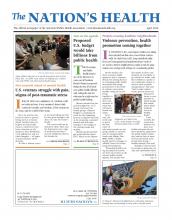“It’s 10 o’clock — do you know where your children are?” is a public service announcement used by many television stations for more than three decades. While the question seems simple enough, the answer might come as a surprise to many parents, according to a new study.
Conducted by the Institute for Social and Economic Research’s Understanding Society, the study asked more than 2,000 10- to 15-year-olds in the United Kingdom how frequently they stayed out past 9 p.m. without their parents knowing where they were. According to the data, among 15-year-olds, 36 percent of boys and nearly a quarter of girls said their parents — at least once a month — do not know where they are. Moreover, 64 percent of 15-year-old girls who stay out frequently past 9 p.m. without their parents’ knowledge said they had consumed alcohol more than once in the last month, compared with only 25 percent of girls who had not stayed out in the past month. In addition, 18 percent of girls who said they had not stayed out past 9 p.m. reported smoking, and the number climbed to 51 percent among girls who stay out frequently.
Staying out late during the teen years is an accepted sign of growing independence, the study authors noted, but a small minority of 15-year-olds — 7 percent of boys and 5 percent of girls — regularly stay out late without their parents knowing where they are.
“It is within this group that the association with problem behaviors such as smoking and drinking is found,” the study authors said. “Regularly staying out late is linked with visiting pubs or bars more often, with frequency of alcohol consumption, with smoking and with cannabis use. These associations are visible for both boys and girls, though they are more pronounced for girls in relation to smoking and drinking.”
According to the study, five times more boys who frequently stay out late without their parents knowing where they are reported ever having used marijuana, compared to boys who do not stay out late.
Looking at study participants’ home lives, the researchers found that staying out late without telling their parents where they are is unrelated to factors such as family income, the number of children in the family or being in a step-family, but is related to the quality of the emotional relationships children have with their parents and whether they live in cities or in the country. Children who hardly ever talk about important matters with their mothers and often quarrel with them were more likely to stay out late, according to the study.
“Staying out late does not cause young people to smoke and drink, but regularly staying out late without telling their parents where they are is symptomatic of a young person with underlying problems,” said Maria Iacovou, a senior research fellow and director of graduate studies at the Institute for Social and Economic Research at the University of Essex. “This is revealed by the fact that 19 percent of boys regularly staying out late have behavior problems and 26 percent of girls in this group score highly for hyperactivity. We also see a third of young women in this group with self-esteem problems.”
Living in public housing or with single mothers also increases the probability that teens will stay out without informing their parents of their whereabouts, the study found. Nationality and ethnicity also play a role, the researchers said. For example, while there were no significant differences between white and black youth, Scottish teens are more likely to stay out late while Asian teens are less likely to stay out late.
The size of the community also factored into the findings, with children living in hamlets and villages less likely than those in towns and cities to go out at night without their parents knowing where they are. Moreover, young people who walk, bicycle or use public transportation to get to and from school are more likely than those who are taken to school by car to stay out at night.
“This study shows that the factors associated with staying out late without your parents knowing where you are, are complex and cannot simply be attributed to bad parenting,” Iacovou said. “Geographical location plays a part too, and may relate to local entertainment opportunities. Other factors such as the mode of travel to school probably relate to independence on the part of young people and trust on the part of their parents, while others, most notably family relationships, demonstrate that social and emotional deprivation also plays a role.”
For more information or to obtain a copy of the study, visit www.understandingsociety.org.uk.
- Copyright The Nation’s Health, American Public Health Association









